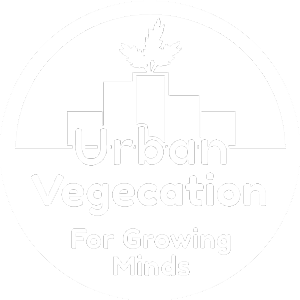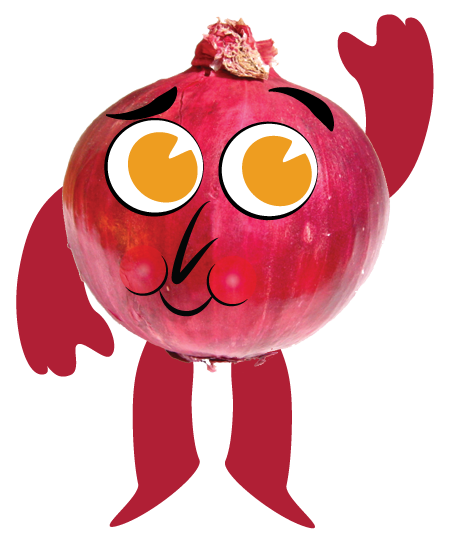
About Urban Vegecation
Urban Vegecation gets kids excited about good, healthy food. In our Classroom Gardening and Cooking Program, chef volunteers are paired with elementary school classrooms (grades 1-3 for the primary program, 4-6 for the intermediate) to give students hands-on experience growing and cooking their own food.

Volunteer Registration
Become a Vegecator!
Join us in the Classroom Gardening Program and teach kids about cooking and gardening.
Please e-mail us at volunteers@urbanvegecation.org to be a part of the 2016 volunteer team!
Volunteer Registration
More Info
We have two classroom programs, our primary program is for Grades 1-3 (in the spring) and intermediate for Grades 4-6 (in the fall). Both run during school hours Monday-Friday in the mornings. You will be paired with a classroom and visit that same class on the same day every two weeks.
The primary program runs during school hours in the spring from April through to June. It is commitment of approximately 4 hours per month for 3.5 months. By submitting this application, you are committing to join an Urban Vegecation Classroom Gardening and Cooking program team.

Program Info
Passionate About Healthy Eating?
Love good food, gardening, cooking, and fun! Join us and other volunteers for our Classroom Gardening and Cooking Program, to teach kids how to grow and cook their own food!
We're looking for volunteers in Toronto and York Region to help us reach nearly 1500 kids this year!
Interested in volunteering? Sign up today!
Program Info
Getting started
- Urban Vegecation Classroom Gardening and Cooking program begins every March.
- Volunteer chefs and community members are put into teams of three.
- With your team, you attend a Volunteer Orientation Session, where you learn basic classroom management skills and review the Urban Vegecation curriculum.

Sample Lesson
Lesson 2: Care of our garden
The Big Idea
The students create rules to care for their garden, and begin to think about urban agriculture. Students explore new vegetables through examination.
Activities
- Garden Talk: How Do Plants Grow?
- Brainstorm: How We Care for Our Garden
- Examination: Vegetable Guessing Game
Sample Lesson
The Lesson
Have teacher arrange class either on desk or on circle on floor.
Remind class how Garden Talk works.
Last week we started Garden Talk. We’re going to have another Garden Talk today. This is our time to share whatever we’d like about changes in our garden, other gardens we see or visit, and vegetables we eat or learn about.
Does anyone have any thoughts about vegetables or gardens? Have you noticed any changes in our Garden?
Students probably will not have seen much growth yet. Ask them why they think they haven’t seen any changes.
Does that mean the seeds aren’t growing and changing? Do you think the changes are happening underground?
Ask the students to share what they know about how plants grow. Most students will probably be familiar with the basics of plant growth.
Once the seed is buried in the earth (remind them that they did that last week), it begins to sprout and push up towards the surface. The roots grow first, and they stay underground.
Ask them if they have seen roots before (ex. big roots of trees that sometimes push up above the surface.) If necessary, explain.

Classroom Tips
Need help vegecating?
Here are some helpful guidelines for using the Urban Vegecation materials and feeling comfortable in the classroom.
Classroom Tips
Use your team
- Co-operate. Remember that your team is there to help you!
- Get to know your team members.
- Try to spend some time before and after each class discussing the lesson, what went well, and things to work on for next time.
- Garden Talk: How Do Plants Grow?
- Use your teacher as a resource.
- Ask questions and accept suggestions.
Prepare
- Before your first lesson, arrange a meeting with your teacher.
- Review each lesson before class.
- Before each lesson, meet with your team to discuss who will lead what parts.
- Collect any necessary materials before class, or provide your teacher with a reminder, if the school is providing materials.
- Arrive at least 15 minutes early.
- Learn the classroom rules and set an example by following them yourself.

Testimonials
From Volunteers
“It’s amazing how stoked you feel coming out of the classroom - feeling great about life.”
Jonathan Chovancek, Volunteer.
“Volunteering is the most fundamental act of citizenship; by caring and contributing to change you help others, gain skills, and you improve the lives of those in your community and in return you enhance your own.”
John Hodgman, Volunteer.
Testimonials
From Teachers
"Thanks for selecting my class for the pilot project. It was a wonderful experience for the students and they learned new skills. They're also starting to think about healthy eating, where their food comes from and growing their own food. I appreciate the time, effort and dedication you put into the Urban Vegecation Program. It's an invaluable program to the Toronto students."
Sylvia Seto. Grenfell Elementary School.
“The greatest success of the Urban Vegecation program is the students’ excitement about food.”
Christine Uchida, Grade 3/4 Teacher, Champlain Heights Elementary.
